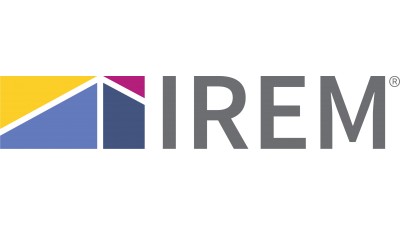How Property Managers Can Lead The Charge In The Fight For More Affordable Housing

There is a staggering shortage of affordable housing in the U.S., with more than 7 million homes needed for the country’s 10.8 million extremely low-income families. As the prices of land and construction continue to rise, there seems to be no quick solution to this complex issue.
There are, however, professionals who advocate for more and better affordable housing by educating their local politicians and training property managers on how to properly manage these assets.
IREM, Institute of Real Estate Management, 2024 President-elect Dawn Carpenter, CPM — Certified Property Manager — manages 200 affordable housing units on New York’s Staten Island. She said IREM is passionate about informing local leaders on the issues surrounding affording housing and ensuring that property managers have the skills they need to keep properties running seamlessly.
“I’ve found that a lot of property managers outside of IREM are not willing to learn how to manage affordable housing, and I’m advocating to change that,” Carpenter said. “In this day and age, with the extreme need for this type of housing, it’s more important than ever for property managers to educate themselves.”
IREM offers a course in managing affordable housing that helps both experienced and new property managers understand the essentials of residential property management, with a focus on the unique issues related to affordable housing.
Carpenter spoke with Bisnow about how managing affordable housing differs from managing market-rate housing and what property managers need to know if they are going to work with this asset class.
She said the main difference between affordable and market-rate housing is the requirements for vetting tenants. While requirements can vary from state to state, in most cases, people who qualify for affordable housing make less than the area median income, and the rent on the units shouldn't exceed 30% of what they make each month.
“Property managers need to understand their local federal programs for affordable housing, including Section 8, grant programs, independent living programs and more,” Carpenter said. “They also need to keep up on changing local regulations as they develop.”
Of the 200 affordable housing units Carpenter manages, 98% are occupied, she said, adding that the only reason 2% are vacant is because they are being retrofitted for new tenants.
Carpenter pointed out that along with the affordable housing shortage, there are continued high vacancy rates in commercial office buildings as more companies move to permanent work-from-home policies. As part of her job, she has been working to encourage building owners to repurpose those commercial properties into affordable housing to solve both issues. She has also been speaking with local politicians about this issue to encourage more redevelopment projects.
“At IREM, we lobby and we educate our politicians and representatives about local affordable housing needs and how we could better achieve the goals of helping people attain that housing,” she said.
In April 2024, IREM and several other national real estate associations signed a letter to Congress calling on it to modify legislation that would provide a 20% tax credit to convert office buildings to other uses, including residential, to include other types of commercial properties, including shopping centers and hotels.
Carpenter said that in the current market, with so many vacant offices and other commercial properties, there is no reason for people to go without affordable housing. She added that IREM will continue to lead the charge to encourage more adaptive reuse projects to create the housing the country needs.
“I will continue to be an advocate, and IREM will be the benchmarking group to educate people on the importance of affordable housing,” she said.
This article was produced in collaboration between the Institute of Real Estate Management and Studio B. Bisnow news staff was not involved in the production of this content.
Studio B is Bisnow’s in-house content and design studio. To learn more about how Studio B can help your team, reach out to studio@bisnow.com.

